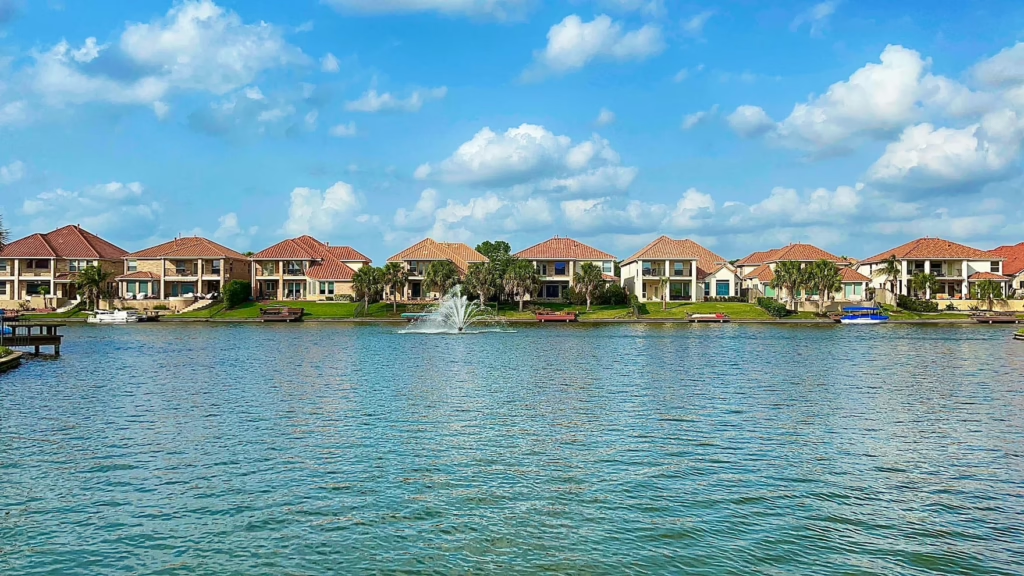If you live in a community with a Homeowners Association (HOA), you know how much the board’s decisions can affect your daily life—from how common areas are maintained to how rules are enforced. That’s why understanding the qualities of a good HOA board member matters, especially if you’re thinking about serving or voting in upcoming elections.
Great board members help keep your neighborhood running smoothly, fairly, and with everyone’s best interests in mind. With Property Focus, you can access reliable property and ownership data to support smart, transparent decision-making regarding property values—whether you’re on the board yourself or just want to stay informed about what’s happening in your community.
Understanding the Role of an HOA Board Member: 5 Key Duties You Should Know
Serving on your HOA board is more than just a title—it’s a commitment to your neighbors and the long-term well-being of your community. Whether you’re considering running for a position or just want to understand what board members actually do, here’s a breakdown of the key responsibilities and roles:
1. Enforcing Community Rules
Board members are responsible for upholding the HOA’s governing documents. This means ensuring that all homeowners follow the same rules—whether it’s about exterior paint colors, parking policies, or pet restrictions. Fair enforcement helps maintain property values and avoids favoritism.
2. Managing the Budget
Every HOA operates on a budget funded by homeowner dues. The board oversees how this money is allocated—from covering landscaping and repairs to saving for long-term projects. Financial decisions must be made carefully, with transparency and community input when needed.
3. Maintaining Common Areas
Whether it’s a clubhouse, pool, or neighborhood signage, the board ensures that shared spaces are clean, safe, and well-maintained. Regular maintenance not only improves residents’ quality of life—it also protects property values.
4. Fulfilling Specific Board Roles
Each board member has a defined role:
- President: Leads meetings and manages day-to-day operations.
- Treasurer: Handles financial matters, dues, and reporting.
- Secretary: Keeps official records and meeting minutes.
- Members-at-Large: Support various committees and assist with general decisions.
5. Acting in the Community’s Best Interest
Above all, board members must put the community first. Personal agendas or favoritism have no place in board decisions. Good governance means listening to homeowners, making fair choices, and always focusing on what’s best for the neighborhood as a whole.
5. Legal Duties
HOA board members have key legal responsibilities, including enforcing the association’s rules consistently without discrimination, as well as managing finances with transparency. They must follow their governing documents and comply with state laws, avoiding conflicts of interest and ensuring proper record-keeping.
Failure to meet these duties can result in legal consequences for the board or individual members. Sound governance protects both the board and the community.
Key Qualities of a Good HOA Board Member
Not everyone is cut out for HOA leadership—and that’s okay. But if you’re thinking about stepping up or simply want to know what makes a strong board, here are the key qualities of a good HOA board member every community deserves:
Fairness and Impartiality
A good board member makes decisions based on what’s best for the entire neighborhood—not just friends, personal preferences, or specific groups. Fair treatment builds trust and keeps the community united.
Strong Communication Skills
You need to be able to listen, explain, and respond—whether you’re talking to a frustrated homeowner, a contractor, or fellow board members. Clear and respectful communication avoids confusion and keeps things moving forward.
Transparency and Accountability
Residents appreciate honesty. A strong board member is open about how decisions are made and takes responsibility when things don’t go as planned.
Financial Literacy
Managing an HOA means handling real money. Board members should feel comfortable reviewing budgets, approving expenses, and making sure the community’s funds are used wisely.
Problem-Solving Ability
Conflicts will happen—between neighbors, with vendors, or over policy decisions. A good board member stays calm, looks at the facts, and works toward practical solutions without letting emotions get in the way.
Commitment and Reliability
Being on the board isn’t just a title—it’s a responsibility. Great board members show up for meetings, stay informed, respond to issues, and follow through on their promises.
These traits aren’t just helpful—they’re what make the difference between an HOA that runs smoothly and one that constantly struggles.
Common Mistakes HOA Board Members Should Avoid
Even with good intentions, HOA board members can make mistakes that lead to frustration, conflict, and even legal trouble. Understanding these common pitfalls can help you or your board avoid them and lead with more confidence and clarity.
Making Decisions Without Input or Transparency
One of the fastest ways to lose the trust of your community is to make decisions behind closed doors. Homeowners want to feel informed and included—especially when it comes to rule changes, fee increases, or major projects. Failing to communicate openly can lead to resentment and suspicion. Good board members keep residents in the loop and make sure important decisions are discussed publicly and documented properly.
Prioritizing Community Needs Over Personal Agendas
Serving on the board means making choices that benefit the whole neighborhood—not just yourself or a small group of people. When board members push personal preferences (like favoring their own contractor or changing rules to suit their lifestyle), it creates division and undermines the integrity of the board. The best decisions are the ones made through an unbiased, community-first lens.
Failing to Enforce Rules Consistently
Selective enforcement—where some residents are held to the rules and others are not—is one of the top sources of HOA complaints. It’s not just unfair; it can open the board up to legal challenges. Consistency is key. If a rule exists, it should be enforced equally across the board.
Ignoring Maintenance or Budgeting Issues
Putting off needed repairs or neglecting the budget can have long-term consequences. Whether it’s a leaky roof in a common building or overdue landscaping, small issues can snowball into major problems. Regular maintenance and responsible budgeting protect property values and keep the community running smoothly.
Avoiding these mistakes helps create a more effective, respected, and trusted HOA board—one that serves the community, not just the position.
How Property Focus Can Support HOA Board Members
Being an HOA board member means making informed decisions that affect your entire community. Property Focus offers tools that help board members do just that—by providing reliable, up-to-date property data that supports better planning, communication, and financial management. Here’s how it can make your job easier, with real-world examples:
Use Property Focus for Property History Reports and Homeowner Data
Understanding the background of each property helps you make smarter decisions as a board. Property Focus gives you access to detailed property history, including past ownership, sale events, and financial records.
Example: Let’s say a homeowner is contesting a violation notice by claiming they weren’t informed of a rule when they bought the home. With Property Focus, you can view the ownership timeline and confirm when they took possession, helping you verify whether proper notice was likely given.
Monitor Real Estate Trends to Guide Decision-Making
Knowing how home values are shifting in your neighborhood can guide decisions about reserve funds, improvements, or rule changes. Property Focus tracks real-time value trends and estimated market shifts.
Example: If your board is debating whether to approve new landscaping for common areas, you can review nearby sales data in Property Focus. Seeing a rise in property values tied to well-kept neighborhoods can support your case for investing in community aesthetics.
Access Ownership and Contact Information for Property Owners
Having accurate contact information saves time and ensures important updates reach the right people. Property Focus provides current and previous owner contact details, so you’re not relying on outdated directories.
Example: If you need to notify absentee owners about a rule change or dues increase, Property Focus lets you quickly pull up contact details—even if they don’t live on-site—making communication more efficient and effective.
Support Financial Planning with Property Value Insights
Budgeting for future repairs or upgrades? Knowing the value of the homes in your community can help justify dues adjustments or special assessments.
Example: If your community is planning a large capital project, you can use Property Focus to show that rising property values support a modest increase in HOA dues—helping residents understand the long-term benefit to their investment.
With Property Focus, HOA board members have the data and tools they need to serve their communities with transparency, accuracy, and confidence—making complex decisions easier and more defensible.
Conclusion
A strong HOA board member can make a lasting impact on a community—ensuring rules are fair, budgets are handled responsibly, and residents feel heard. When board members lead with integrity, transparency, and a commitment to the greater good, neighborhoods thrive. But great leadership isn’t just about attitude—it’s also about having the right tools. With Property Focus, board members can access reliable data, stay organized, and make informed decisions that benefit the entire community. Whether you’re serving now or considering a future role, combining the right mindset with the right resources is key to running a successful HOA.
FAQs
Do HOA board members need specific qualifications or licenses?
No, most HOA board positions are volunteer roles and don’t require formal licenses, but having leadership, financial, or legal experience is a plus.
How long does an HOA board member typically serve?
Terms vary by community, but most board members serve for one to three years, with the option to run for re-election depending on the bylaws.
Can board members be removed from their position?
Yes, homeowners can typically vote to remove a board member through a special meeting or election, depending on the rules in the governing documents.
Are HOA board members paid for their service?
In most communities, HOA board members are volunteers and are not paid. However, some may receive reimbursements for certain expenses.
How can someone become a board member in their HOA?
Usually, homeowners are nominated and elected during the annual meeting. Interested residents should check their HOA’s bylaws for eligibility and election procedures.


